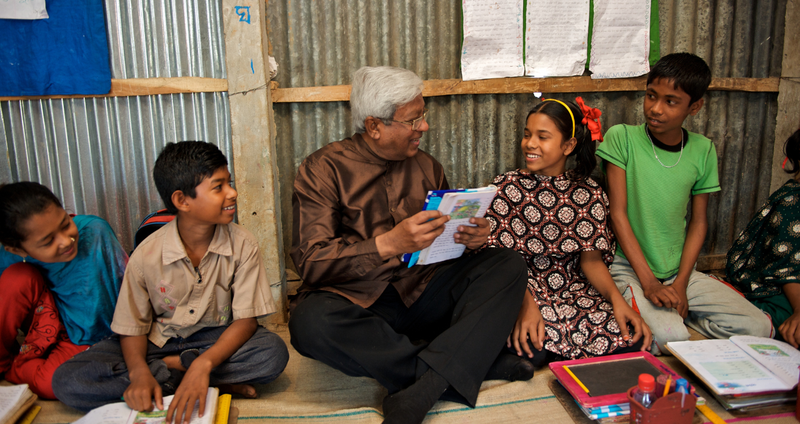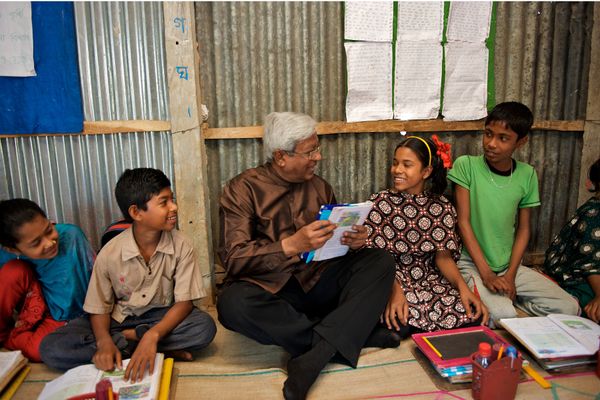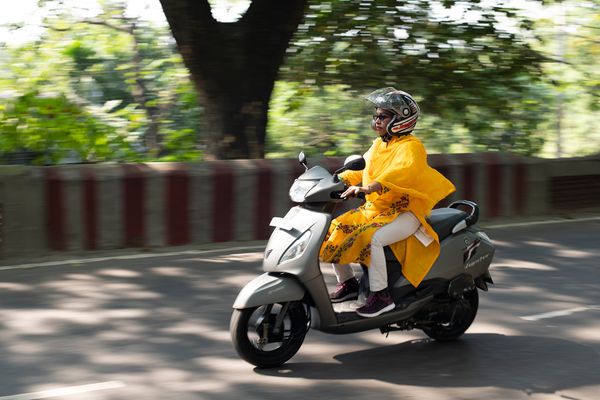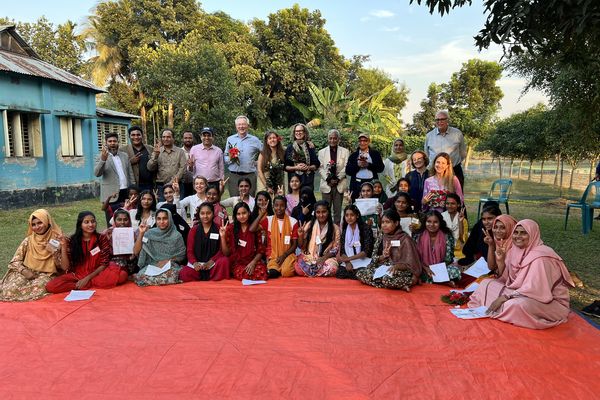
This piece was originally published in Giving Compass. It has been reposted here.
Over five decades ago, BRAC was founded in Bangladesh in the wake of a war that secured the nation’s independence and a devastating cyclone that left it reeling with upwards of 200,000 lives lost. Today, the organization reaches more than 100 million people across 17 countries with proven poverty innovations that enable individuals to lift themselves out of poverty and reach their potential.
How did an organization rise out of the ashes to this scale?
BRAC’s founder, Sir Fazle Hasan Abed, believed unquestioningly in the power of people. He built BRAC on that belief. Poverty and inequality are human-made, so they can be unmade. For half a century, BRAC has proven that people in situations of poverty and inequality can tackle their own challenges—with the right tools, knowledge and opportunities—and that communities are the most powerful drivers of change.
It all started back in 1970, when the Bhola cyclone hit Bangladesh—the world’s 4th deadliest recorded natural disaster. The political hijacking and genocide that followed as Bangladesh, as we now know it, successfully achieved independence from East Pakistan, created utter devastation throughout the country.
When the Bangladesh Liberation War came to an end a year later, 10 million refugees returned home to Bangladesh with dreams of building a prosperous new country.
But after a long journey, they found their newly independent homeland in ruins. War had left the land barren and burnt. Crops had been destroyed. Animals had been slaughtered. Roads, bridges, homes, and livelihoods were gone. Food shortages and disease ran rampant.
It was amid this lowest point imaginable that BRAC was born. Against all odds, people arose and surged Bangladesh’s economy. In London, a native Bengali and former executive at Pakistan Shell, Fazle Hasan Abed, was packing his bags to return to Bangladesh. After supporting the war effort from afar, he was eager to head home and help his fellow countrymen effectively improve their own lives.
Abed (or Abed bhai, as he was known—“bhai” means “brother” in Bengali) knew this wasn’t going to be easy. He raised money from everyone he knew in London and even sold his own apartment to start BRAC. His first goal was to help refugees in Sulla, a remote area of northeastern Bangladesh.
He started small, with bamboo. Abed bhai and his team used a grant from Oxfam to make bamboo into rafts that were floated down rivers into areas otherwise only accessible by foot. Those same bamboo rafts were repurposed into homes, fishing boats, and tools, and the people of Sulla began to build better lives for themselves.
From those humble beginnings, Abed bhai grew that seed into what it is today: one of the largest NGOs in the world, supporting 100 million people across Asia and Africa to rise above poverty.
“BRAC stands for an idea—an idea of a world where everyone has equal opportunity to realize their potential,” Abed bhai said.
Nicholas Kristof of The New York Times called BRAC “the best aid group you’ve never heard of,” and called Abed “one of the unsung heroes of modern times.” Bill Clinton declared him “a great gift to humanity.” “We will forever draw inspiration from his work,” shared Bill and Melinda Gates upon Abed’s passing.
In a letter to BRAC staff before he passed away, Abed shared his unwavering belief in the power of people to change their own lives. “The inequalities that create divisions of rich and poor, powerful and powerless, are made by humans. So, change is also possible through human acts of compassion, courage, and conviction. I have spent my life watching optimism triumph over despair when the light of self-belief is sparked in people.”
That spark was something Abed called “the science of hope” — the idea that investing in people’s hope and self-esteem is as important as investing in their education or small businesses, and that when people are equipped with opportunities and hope, they can achieve anything they set out to do.
Abed believed unquestioningly in the power of people, and he built BRAC on that belief. BRAC has since proven that with the right tools, knowledge, and opportunities, people in situations of poverty and inequality can tackle their own challenges and become the most powerful drivers of change.
Over the years, BRAC’s many committed supporters and partners have shared our belief in the power of hope, and opportunity. It is because of this dedicated community that we have made so much progress for millions of individuals in Asia and Africa.
With 700 million people living in extreme poverty, the challenge remains daunting. But our solutions — tested, refined, and scaled over time — are effective. We know that poverty is a completely solvable problem, and we have the research to prove it. A world without poverty is within reach if we work together.
Together, with your help, we can make that world a reality. By joining this community, you too can plant a seed that will grow into something long-lasting and meaningful. Sign up to follow our work and make a difference today.
Sarah Allen is Communications Manager at BRAC USA.



